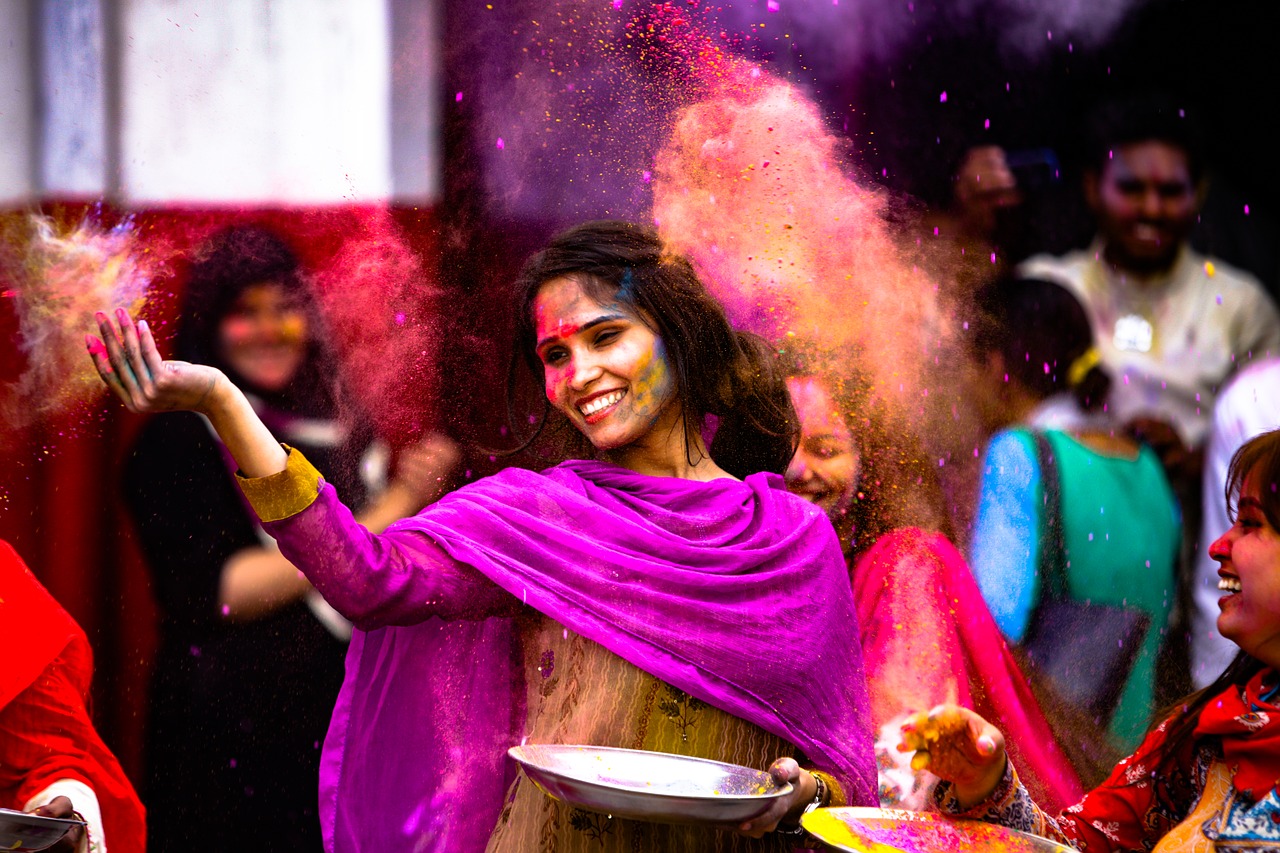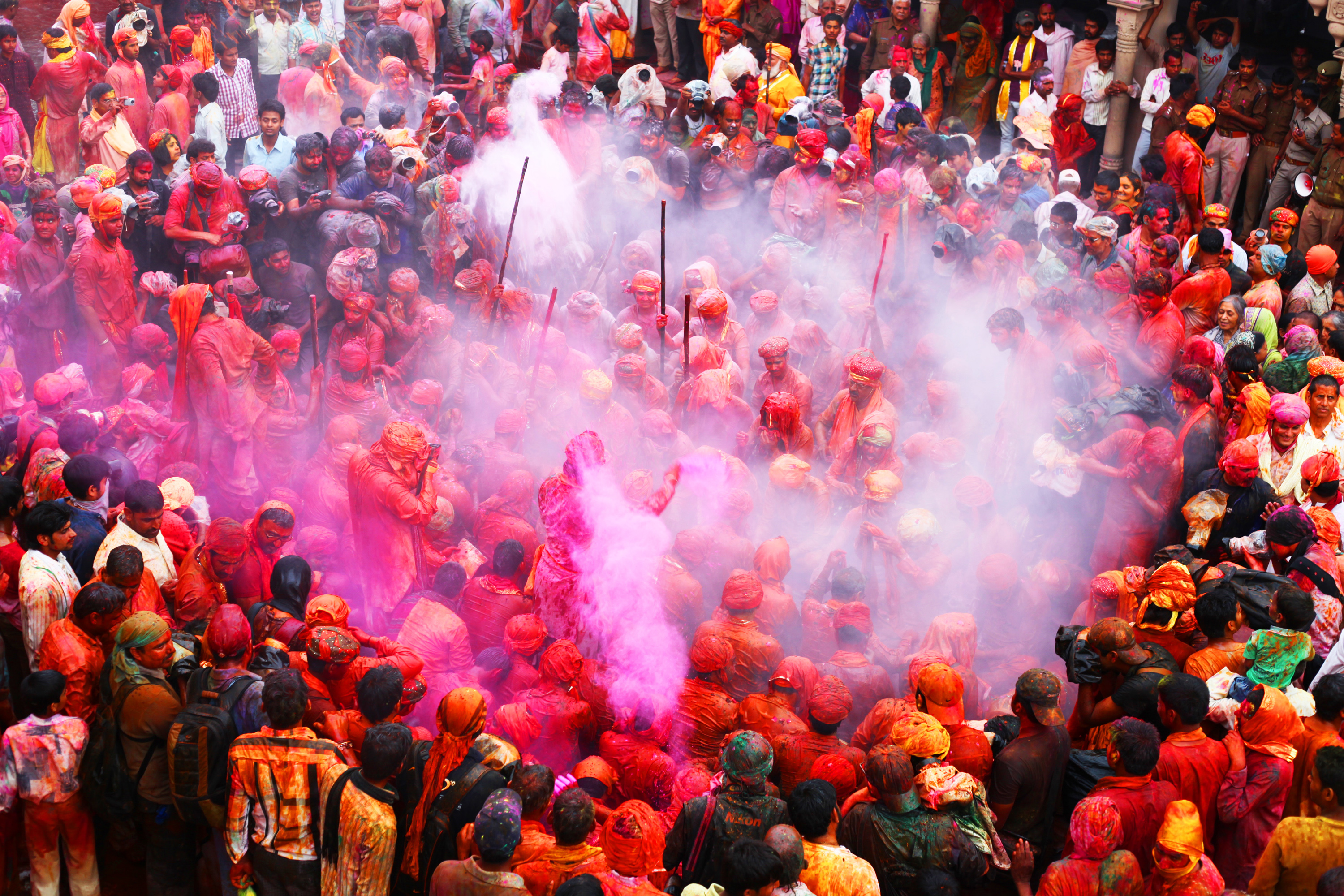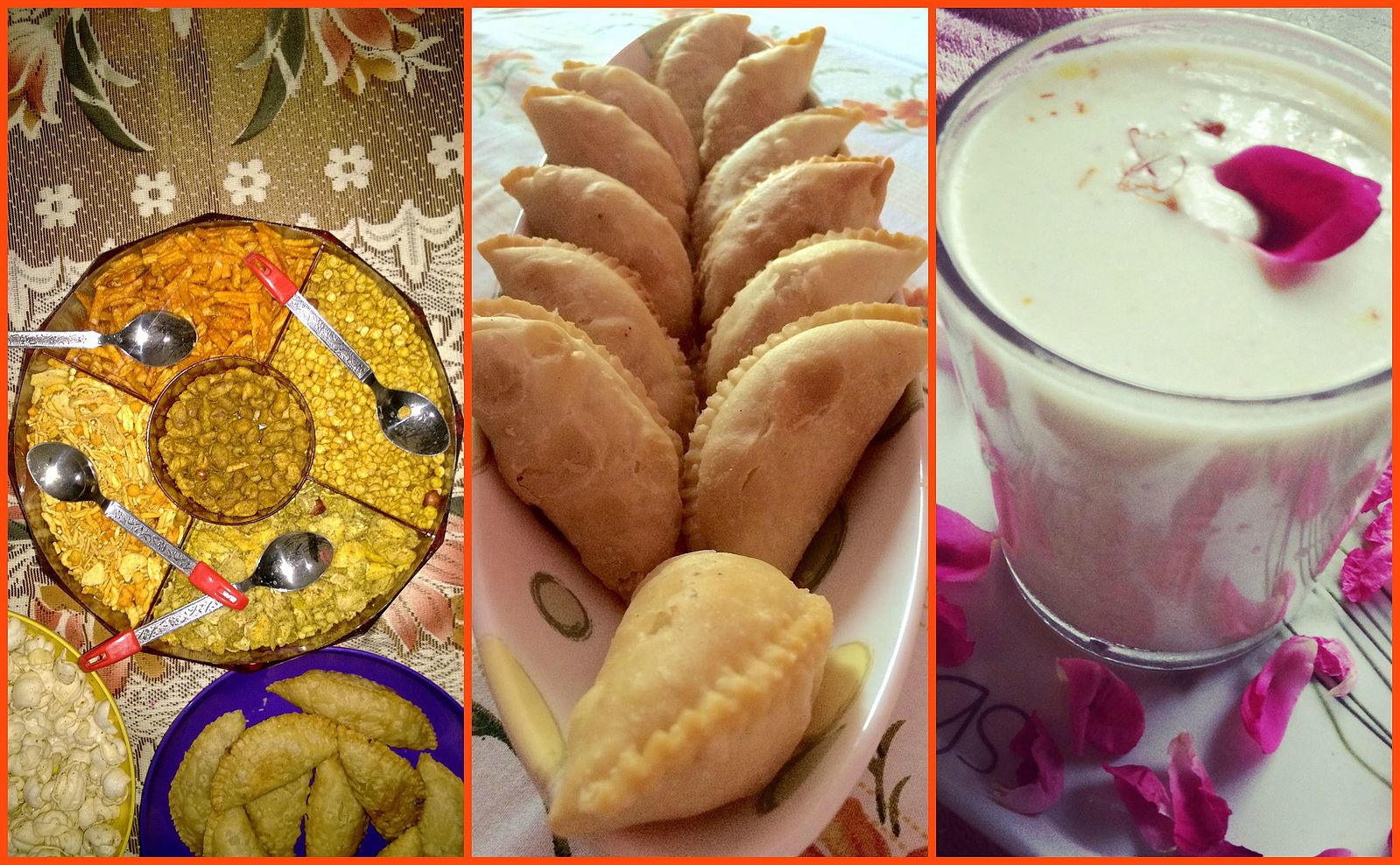
What better way to welcome spring than by dousing yourself and your friends with vibrant colored powder? That is the essence of the popular Indian festival of Holi. Observed annually on the last full moon day of the Hindu lunar month, Phalguna, this year, the fun event will be celebrated on March 21, 2019.
As with all festivals, there are numerous folktales associated with Holi's origin. The most popular one attributes the celebration to Hiranyakashipu, the king of demons, and his only son Prahlada. According to the ancient legend, the ruler was unhappy with the prince's devotion to Lord Vishnu, the Indian deity charged with protecting humanity and restoring order to the world. When all efforts to destroy his son's belief failed, Hiranyakashipu turned to his sister, Holika, for help. The demon goddess, blessed with a shawl to resist heat, summoned Prahlada to sit on her lap on a pyre. To everyone's surprise, as the flames grew, Holika's protective wrap magically flew over to Prahlada, saving the young boy, while the demon goddess burnt to ashes. The locals marked the day with a celebration similar to the modern-day Holi, and a fun tradition was born. To this day, many Hindus light a giant bonfire on the night before Holi to cleanse the air of evil spirits.

In the north Indian state of Uttar Pradesh, Holi commemorates the immortal love between the fun-loving Indian god Krishna and his beloved Radhika, or Radha. Since the epic love story cannot be honored in a single day, the residents of Mathura, Krishna's birthplace, celebrate the festival for almost a month, with different events on each day. The highlight is Lathmar (stick) Holi, which is observed several days before "Rangwali (color) Holi."
The biggest Lathmar Holi celebration is held in the village of Barsana, the birthplace of Radha. On this day, the village women stage a mock battle with the men from the neighboring village of Nandgaon (where Krishna resided till the age of ten) to prevent them from placing a flag atop Radha's temple. The women pretend to hit the men with bamboo sticks, while the men fight back with the only weapon available to them — colored powder! Regardless of who wins, the following day the women of Barsana return the favor by heading to Nandgaon, this time armed with just colored powder to celebrate Holi.

For those that live in other parts of India, the real fun begins early on the day of Holi. People, young and old, take to the streets, greeting friends and strangers alike with a joyful "Happy Holi" before deluging them with colored powder, water balloons, and even buckets of colored water. At about midday, the crowds start to disperse. Most revelers head to nearby rivers and oceans for a quick rinse before returning home to reminisce about the fun day, enjoy a special feast, and take a well-deserved siesta.
Happy Holi!
Resources: wikipedia.org,goindia.about.com, timesofindia.com
